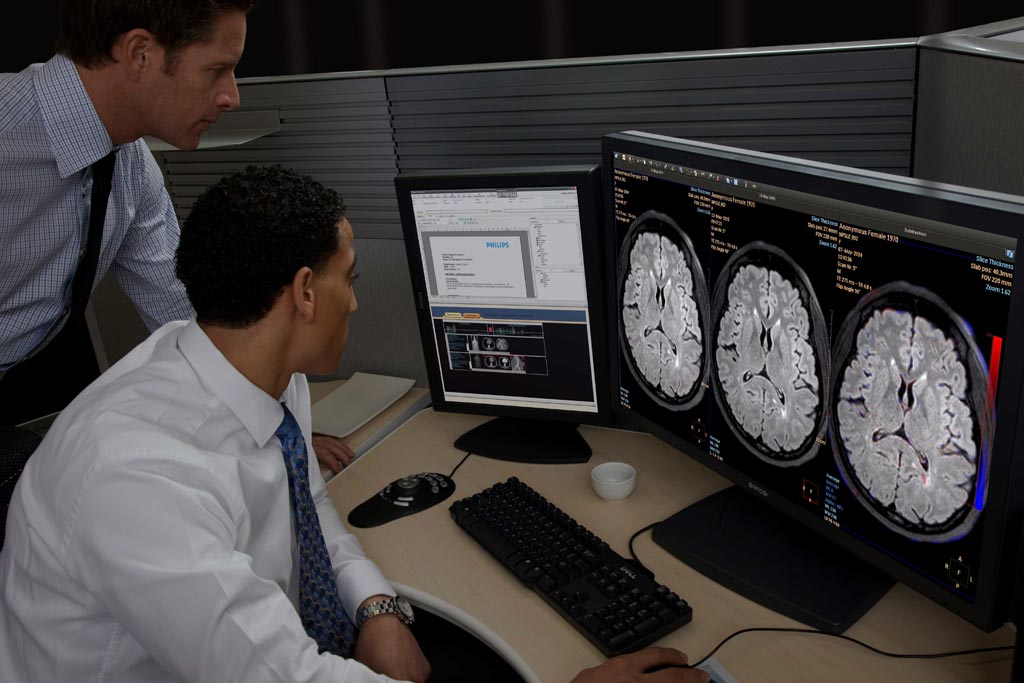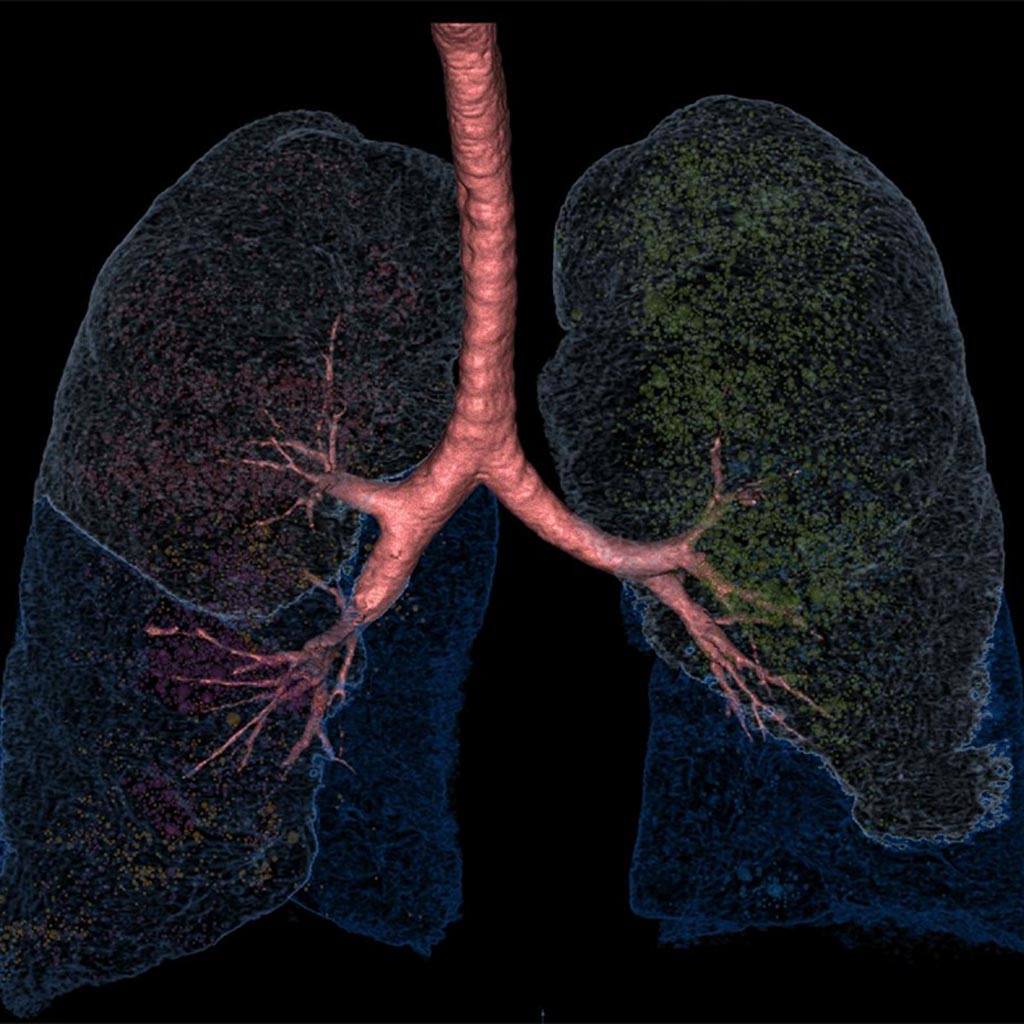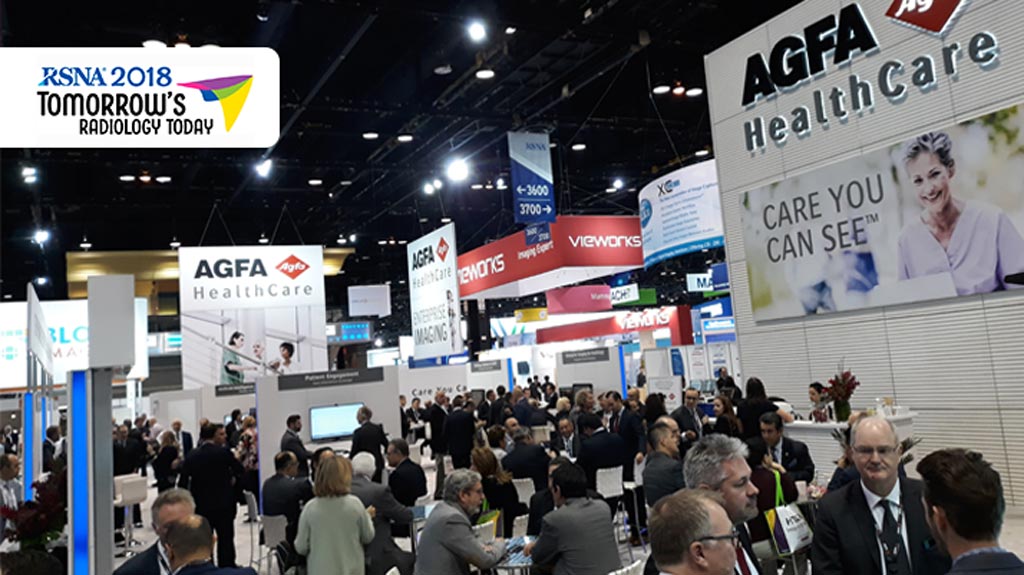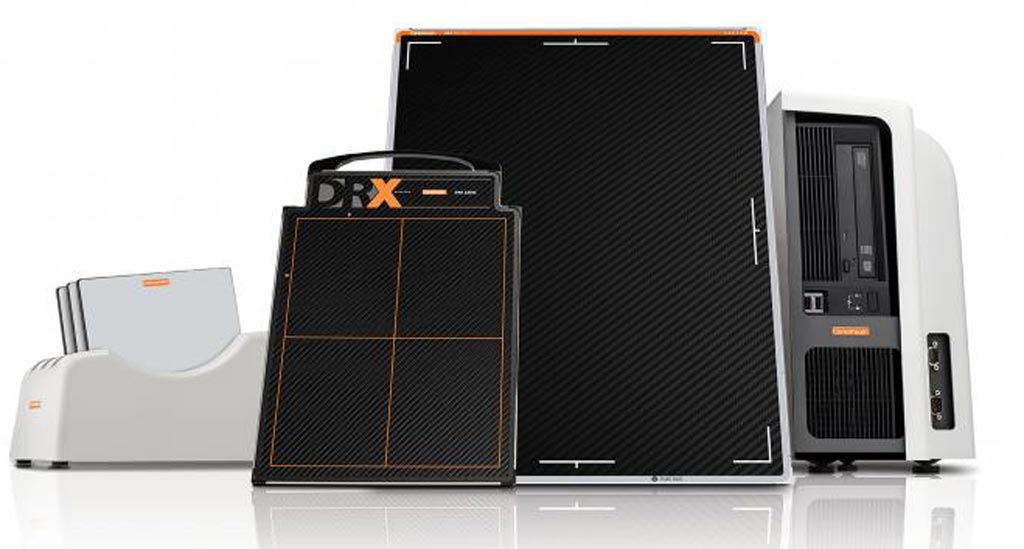Philips Launches New Platform to Enable Development of AI Assets
By MedImaging International staff writers
Posted on 23 Nov 2018
Royal Philips (Amsterdam, the Netherlands) showcased its latest innovations powered by adaptive intelligence at the 2018 Radiological Society of North America Annual Meeting (RSNA), which took place November 25-30, in Chicago, Ill., USA. The company introduced IntelliSpace Discovery 3.0, a comprehensive, open platform to enable the development and deployment of Artificial Intelligence (AI) assets in radiology aimed at supporting radiologists in their clinical and translational research.Posted on 23 Nov 2018
Philips combines AI and other technologies with knowledge of the clinical and operational context in which they are used – a people-centered approach called 'adaptive intelligence' – to develop integrated solutions that adapt to the needs of healthcare providers. To support the adoption of AI in key healthcare domains, Philips has developed an AI platform for healthcare – Philips HealthSuite Insights, which delivers healthcare-specific tools and technologies to address the full process of building, maintaining, deploying and scaling AI solutions. The tools and technologies available through HealthSuite Insights already enable machine learning and deep learning applications in diagnostic imaging, telehealth, oncology and genomics.

Image: The IntelliSpace Portal advanced visualization and quantification platform (Photo courtesy of Philips Healthcare).
Philips has further integrated HealthSuite Insights into its enterprise imaging platform with the launch of IntelliSpace Discovery 3.0, a proven research platform, supporting more than 50 hospitals and academic institutions worldwide for the development of radiology applications for rendering, segmentation, and quantification. For example, it is being used for clinical validation and subsequent deployment into the radiology workflow on the Philips IntelliSpace Portal, a comprehensive, advanced data integration, visualization, and analysis platform to enhance diagnostic confidence. The platform combines clinical data from various modalities across the health system using AI to enhance clinical workflows. The latest iteration includes IntelliSpace Portal 10, which features machine learning capabilities to automatically learn from prior application usage to predict the series and data type on which pre-processing should be applied.
With the introduction of IntelliSpace Discovery 3.0, the platform now provides applications and tools for radiologists to aggregate, normalize and anonymize data, which can be visualized and annotated to ‘train’ and validate deep learning algorithms. They can then easily deploy these algorithms as plug-in apps into the research workflow to analyze new datasets and help facilitate clinical research in radiology, oncology, neurology and cardiology, from the workbench to the patient’s bedside.
Among its latest innovations showcased at the RSNA 2018 was Philips Illumeo, an imaging and informatics technology available as part of IntelliSpace Enterprise Edition for Radiology, with adaptive intelligence, combining contextual awareness capabilities with advanced data analytics to augment the work of the radiologist. Pulling data from various hospital sources, the Philips Illumeo software presents a holistic view of the patient and provides relevant tools that adapt to physician needs, offering insights and standardizing their workflow based on their own preferences. Also on display at the event was Philips’ Compressed SENSE, an advanced acceleration application available on its Ingenia Elition 3.0T and Ambition X 1.5T MR systems that uses adaptive intelligence to reduce exam times by up to 50%; and the AI-driven SmartExam analytics for automatic planning, scanning and processing of exams to improve the entire MR workflow, from image acquisition to reading preference.
Philips also showcased its AI for breast, part of the company’s integrated breast ultrasound solution, that enhances reproducibility and streamlines workflow while preserving image quality during breast exams. The automation and intelligence provides visual mapping and annotation of screened anatomy, with minimal user interaction, to give clinicians confidence while documenting full coverage of the breast during the acquisition phase. Available with the Philips EPIQ and Affiniti ultrasound systems, AI for breast is part of all-in-one solution brings together high-quality imaging with complementary clinical tools tailored for breast screenings.
"Together with our customers we're enabling research in adaptive intelligence with the goal to create solutions that augment healthcare professionals and improve patient care and efficiencies of care delivery, both inside and outside of the hospital," said Jeroen Tas, Chief Innovation & Strategy Officer, Philips. "AI is the connective tissue to seamlessly integrate data and technology to enable precision diagnosis. At RSNA 2018, we're showing how AI is laying the foundations for solutions of the future."














